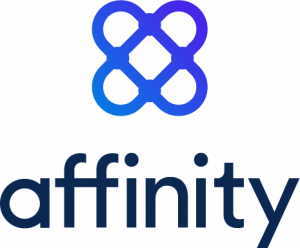Tell us about your journey into technology. What made you co-start Affinity?
My co-founder and I were studying at Stanford and spent a summer at an incubator when we discovered the problems that made us start the company. It was fairly serendipitous: we were just looking to better understand what people across many different industries do day-to-day, and we ended up realizing that they all do pretty much the same thing — they build, manage and nurture relationships with other people. This is true whether they’re a small business owner, a lawyer, an accountant, an entrepreneur, a salesperson or whatever else. We also realized that most people struggle to manage their professional relationships effectively. Hence Affinity!
What are the core tenets of your business development model? How does Affinity add value to customer journeys for businesses?
Affinity is a relationship intelligence platform, and there are three main things our customers love us for: (1) We are the most automated relationship management system on the market. This means that we save our customers (and their teams) tons of time when they’re trying to manage a pipeline of some sort. Gone are the days of manual data entry — we let our customers focus on doing their actual job! (2) We help them leverage their network to discover hidden opportunities. Through Affinity, our customers can discover hidden opportunities sitting in their network they didn’t even know about, allowing them to truly leverage their real-time relationship graph to achieve a business outcome. (3) Prioritization — we help customers not drop the ball on important relationships by surfacing data-points like missed emails from important prospects, relationships going cold, etc.
What is the future of CRM as data science matures further?
Great question! We’re living in an absolutely amazing time today. Data processing and Natural Language Processing efforts are at their peaks. I think we’re just scratching the surface today of how the CRM space is going to evolve. There are three key things I think we will see more of:
(1) A drastic reduction in data entry from teams: everything from logging calls, creating contacts, to even notes from call transcriptions and automatic status updates on deals. Nearly any activity that the rep is doing when interacting with a CRM platform, they probably won’t be doing at all!
(2) CRMs will help you prioritize your deals. It is easy for any rep to get overwhelmed when deciding which deals they should be focusing on. With the amount of information available today, CRMs should be able to go from being systems of record to actual prescriptive platforms where they’re helping the sales rep throughout their days on which deals to reach out to, where the ball is being dropped, etc.
(3) CRMs should help you get into new accounts. There is still a ton of work to be done by most (if not all) CRM companies on how they can analyze data to produce relational insights on which accounts reps can get warm introductions to. This will likely be a game changer in the long-term.
How do you measure the performance of your marketing analytics and sales reporting tools?
We track very closely a lot of the same KPI’s that other companies track, such as deals closed, activity, revenue, pipeline movement, etc. But since we are in the relationship business, we also understand the importance of establishing fruitful, long-term relationships, so one of the most important ways we measure this is making sure that no valuable relationship ever goes stale or cold. Of course, we use our own platform to track this!
What benefits do you extend to your customers and employees as part of your digital transformation?
A big part of the digital transformation taking place right now is the ability of computers and technology to help us generate deeper, more meaningful personal and professional relationships. I think that one of the coolest benefits of the Affinity platform is its ability to help users manage and nurture important relationships more easily and effectively. For instance, the platform can tell you if you haven’t responded to an important email, making sure that nothing slips through the cracks. It can also tell you when a relationship is in danger of going cold and it might be time to reach out to a certain person. This is all part of our goal of using AI to bolster human relationships.
What are your predictions on the most impactful disruptions in B2B automation and account targeting technologies?
We think the biggest disruption will occur due to users’ access to data. At Affinity, we started by first solving how to process huge siloed stacks of data, like communication data, and structuring it in a way to make it actionable.
How do modern data privacy regulations impact your customer experience deliverables?
Security and privacy are really important to Affinity. We deal with a ton of sensitive communications data that in many ways forms the IP of our customers. I think it’s good that regulations like GDPR are out there to protect consumer interests, and the whole world is moving towards a similar model as what the EU adopted. Obviously, as a vendor, you have to put in a lot more work to stay compliant with the different regulations, but we think that is time well spent as it helps protects our customers from any breaches or privacy violations.
What startups in the technology industry are you watching keenly right now?
The CRM and relationship intelligence space of course since that’s what we play in and it’s a very high activity market. I’m personally intrigued by companies that have managed to grow really quickly and sustainably, such as companies like Slack and Coinbase. I also follow leaders at those companies to learn and better understand how they accomplished what they did.
What marketing and sales automation tools and technologies do you currently use?
We use Hubspot, Outreach, and, of course, Affinity.
Could you tell us about an outstanding digital campaign? (Who was your target audience and how did you measure success?)
We have seen a lot of success with Facebook’s Custom Audiences. After our success in Venture Capital with very little ad spend, we targeted corporate development teams. Leveraging the data we had on VCs, paired with our own research and insights, we were able to find the right people, at the right organizations.
How do you prepare for an AI-centric world as a business leader?
I think the key insight I have had here is that we all need to think of AI as another enabler of a business/personal outcomes. The same way, for example, the industrial revolution or the computing revolution of the 1980s was for folks who lived during that time period.
AI is a means to achieve a certain goal faster. I think first and foremost, communicating this to my team and having them believe in it is important. This way, they can focus on the tasks and strategies that truly matter, and let AI tools and technologies take care of the rest.
How do you inspire your people to work with technology?
I think technology is one of the most incredible enablers we’ve had in the last century for all of us to add more meaning to our work lives. A simple day-to-day example here is automating small, tactical action items.
I want my team to be doing smart work — spending time on things that they truly need to do on a strategic level. So this is honestly an easy one. Would you rather be spending 10 hours entering data on a spreadsheet or thinking about a strategy to drive a certain outcome? If you want the latter, embrace technology since there is probably a way to automate all of the manual effort that you’re putting in to drive an outcome.
One word that best describes how you work.
Disciplined
What apps/software/tools can’t you live without?
Slack, Google Suite (Docs, Spreadsheets), Affinity, the native notes app on iPhone
What’s your smartest work related shortcut or productivity hack?
As a first time founder, one of the things I quickly realized is how your day can be drained from just meetings alone. Now I will occasionally book a block of time out of the office so I can ensure I won’t get distracted.
What are you currently reading?
I’m pretty old school, so I absolutely love reading books. I don’t consume a ton of media over the internet. Radical Candor and Sapiens are the two books that impacted me most meaningfully in the last year. I’m currently reading High Output Management.
What’s the best advice you’ve ever received?
“The slope is always a better measure that the y-intercept.” It’s a very mathy statement, but one of my Computer Science professors at Stanford once told me this and I think about it pretty often. This means that what matters in life the most is how fast you can learn, not how much you already know. Being humble and having a growth mindset is the best way to be successful.
Something you do better than others – the secret of your success?
I am able to prioritize my days pretty well, and I’ve worked very hard on becoming better at switching contexts as I interact a lot with different parts of the business. The key is: can you remain productive when one second you’re talking marketing strategies, and the next minute you’re talking about strategies to improve code performance? Fortunately, the answer is a reassuring yes.
Tag the one person (or more) in the industry whose answers to these questions you would love to read:
Reid Hoffman, Jeff Bezos, Bill Gates, Stewart Butterfield
Thank you, Shubham! That was fun and hope to see you back on MarTech Series soon.
Shubham Goel is the co-founder of Affinity, the leading relationship intelligence platform. An expert in Artificial Intelligence, Shubham believes in the power of computers and technology to help bring humans together and forge deeper, more meaningful personal and professional relationships. At just 23 years old, Shubham is a rising star in the Silicon Valley tech scene. He was a partner in the Dorm Room Fund, the Bay Area VC that made investments in student-run startups. He also served as a Founders Program.

Using patent-pending technology, Affinity surfaces important relationship data hidden in your communication streams to show who can make the right introduction for your next big deal. The Affinity platform also eliminates manual processes by instantly capturing relevant data and automating CRM workflows. Affinity was founded in 2014 by Ray Zhou, Shubham Goel and Joe Lonsdale, one of Silicon Valley’s most prominent entrepreneurs and investors. The company is headquartered in San Francisco and backed by leading investors including 8VC, Sway Ventures, Pear Ventures, Great Oaks Venture Capital and Western Technology Investment.
The MTS Martech Interview Series is a fun Q&A style chat which we really enjoy doing with martech leaders. With inspiration from Lifehacker’s How I work interviews, the MarTech Series Interviews follows a two part format On Marketing Technology, and This Is How I Work. The format was chosen because when we decided to start an interview series with the biggest and brightest minds in martech – we wanted to get insight into two areas … one – their ideas on marketing tech and two – insights into the philosophy and methods that make these leaders tick.











